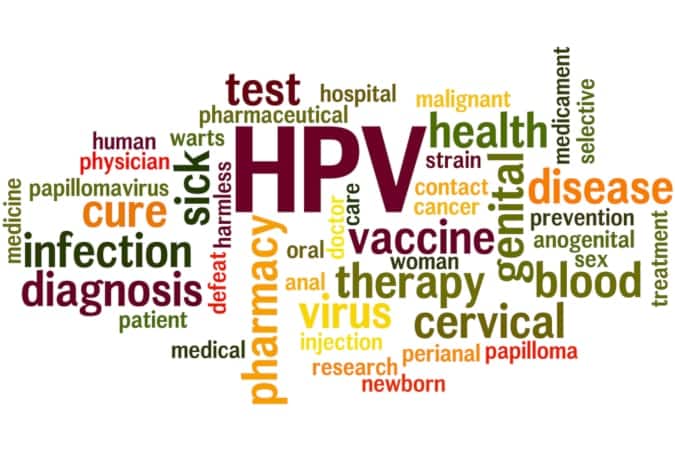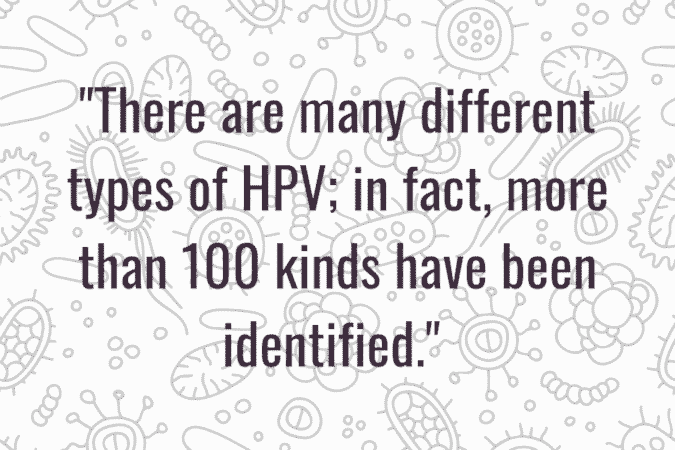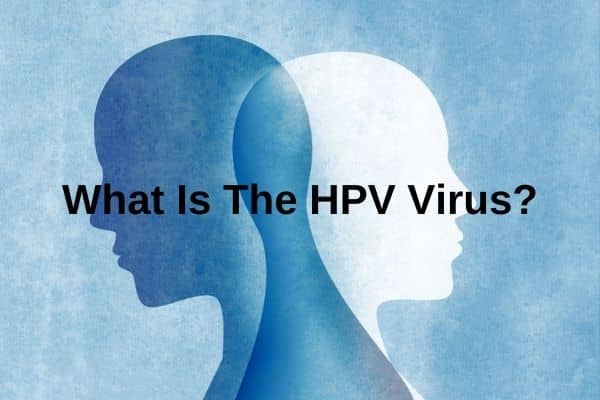Are you worried about HPV?
Are you unclear as to what exactly HPV is?
We at Papillex understand your concerns.
HPV can be scary! That’s why in this article we have covered all you need to know about HPV so you can understand the facts and feel empowered toward your health.
What Is HPV?
The human papillomavirus (HPV) is a viral infection. HPV has become an extremely prevalent sexually transmitted infection worldwide, now topping the charts of the most commonly sexually transmitted infection in the United States.
Most people think that HPV indicates that your body is in real dire straits, and it can cause some very serious health problems, including cervical cancer and genital warts.

However, HPV can also just pass through your system quietly without any symptoms.
This is why it is really important that you separate the fact from fiction as you understand what it means to carry the infection.
This article aims to help you understand the truth behind the human papillomavirus infection, allowing you to feel more assurance at what it means to live with the condition.
Types Of HPV
There are many different types of HPV; in fact, more than 100 kinds have been identified.
These variations are further divided into low-risk and high-risk strains, with each type leading to potentially different health problems.
For example, skin warts are caused by HPV-1 to HPV-4. Types HPV-6 and HPV-11 are the main cause of common and genital warts. Types 16 and 18 are the strains most commonly associated with cervical cancer.

Transmission
HPV is primarily a sexually transmitted disease. In fact, the Center for Disease Control states that HPV is the most commonly sexually transmitted infection in the United States.
However, sexual intercourse is not needed to transmit the infection, with HPV being transmitted through skin-to-skin contact.
Having said that, most people do tend to get the infection through direct sexual contact, whether it be through vaginal, anal or oral sex.

Symptoms may not develop right away; it can be years before any health problems are seen, which makes it hard to identify the source. Anyone who is sexually active, even with one person, can get HPV.
Transmission At Birth
Pregnant women with HPV can also pass on the infection to their child during delivery, although this occurs very rarely. In the case that this does happen the health impact on the baby can be quite severe, with it being possible that warts develop in the throat and/or airways causing recurrent respiratory papillomatosis.
Symptoms and Health Problems
For most people, symptoms of HPV do not manifest themselves until the infection has developed to a later stage, and at this point it may already be too late. This is why it is important to get yourself tested for HPV at regular intervals.
As mentioned previously, there are more than 100 strains of HPV, with each affecting the possible symptoms a carrier of the infection may develop.
In most cases for healthy men and women, HPV will go away of its own accord and not cause any health problems.

However, for those who may have a weakened immune system, it is possible that HPV can cause health problems.
Common health problems caused by the HPV virus include:
- Genital warts
- Common warts
- Plantar warts
- Laryngeal papillomas
- Facial warts
- Precancerous lesions of cervix, anus, penis, vulva, or uterus
- Cervical cancer
- Penile carcinoma in men
Cancer Development
Cancer formation by the HPV virus involves two proteins encoded by HPV genes, called E6 and E7.
These proteins interfere with the activities of other proteins which should prevent tumors from forming in your body, however, they are instead disrupted by E6 and E7.
When these tumor suppressor proteins are disrupted, cancerous cells can form and go wild in your body.
This process usually takes years as abnormal cells take a long time to become so far advanced. That’s why it is absolutely vital that young women test regularly for abnormal cells with a medical professional.
Diagnosis, Control and Prevention
How do I know if I have HPV?
Testing regularly for HPV is the first positive step to keeping HPV and cervical cancer in check.
There are two prominent ways in which young women are screened for cervical cancer, the HPV test and the Pap Smear test.
The Pap Smear tests for changes in the cells of the cervix, while HPV testing looks for the presence of the viral infection itself.
Even if you are found to have abnormal cervical cells or HPV is found to be present in your system, most men and women will not develop any health problems from having the virus.

How can I stop myself from picking up HPV?
As the climbing rate of HPV prevalence makes it the most common sexually transmitted infection in the US, the focus should be on prevention.
Using condoms the proper way each and every time you have any sexual contact will lower your chances of HPV. However, this will not fully protect against the virus – there is always a risk that there may be contact with infected areas whether you use a condom or not.
So, what else can you do to stay free from HPV?
Routine Pap Tests
Regular pap smear tests are strongly recommended for women over the age of 21. The recommended interval for healthy young women with no prior history of abnormal cells is once every three years.
Pap smear tests are especially recommended for women who have multiple sexual partners.
Routine checkups are the best way to find HPV in its early stages in order to begin preventative measures.
As men can be affected by HPV as well as women, men should also go for routine checkups and be screened for symptoms such as warts or precancerous lesions in the anal or penile region.
HPV Vaccinations
While HPV vaccinations do not protect against all strains of the virus, Gardasil, the most commonly administered, is effective at protecting against the 2 strains of HPV that cause genital warts and the 2 that are the most high-risk when it comes to causing cancer, including cervical cancer.
If sexually active men and women were not vaccinated earlier, vaccination is recommended up until age 26.
Gardisil is the most commonly used vaccination, protecting against the 2 strains of HPV that cause genital warts, and the 2 strains that are the most high-risk HPV strains, commonly known to cause cancer, such as cervical cancer.
How Do I Fight HPV Naturally?
HPV-related health problems or diseases can be fought by a healthy immune system. Commonly when someone has an HPV infection and it goes by unnoticed, it is due to their healthy immune system keeping the virus at bay. An immune system is the first line of defense against all diseases, including HPV.
Lifestyle changes such as quitting smoking, decreasing alcohol consumption, regular exercise, mindfulness, and healthy dietary changes are a few ways to keep a robust immune system ready to fight back.
Papillex is a supplement that contains vitamins and nutrients which have been shown in research to support the immune system in the fight against HPV, further aiding in preventing health problems like genital warts and cervical cancer.
The ingredients in Papillex were hand-picked for their immune boosting properties. Take a look at the breakdown of Papillex’s ingredients.
Why watch and wait when you could be proactive? Order Papillex today!





